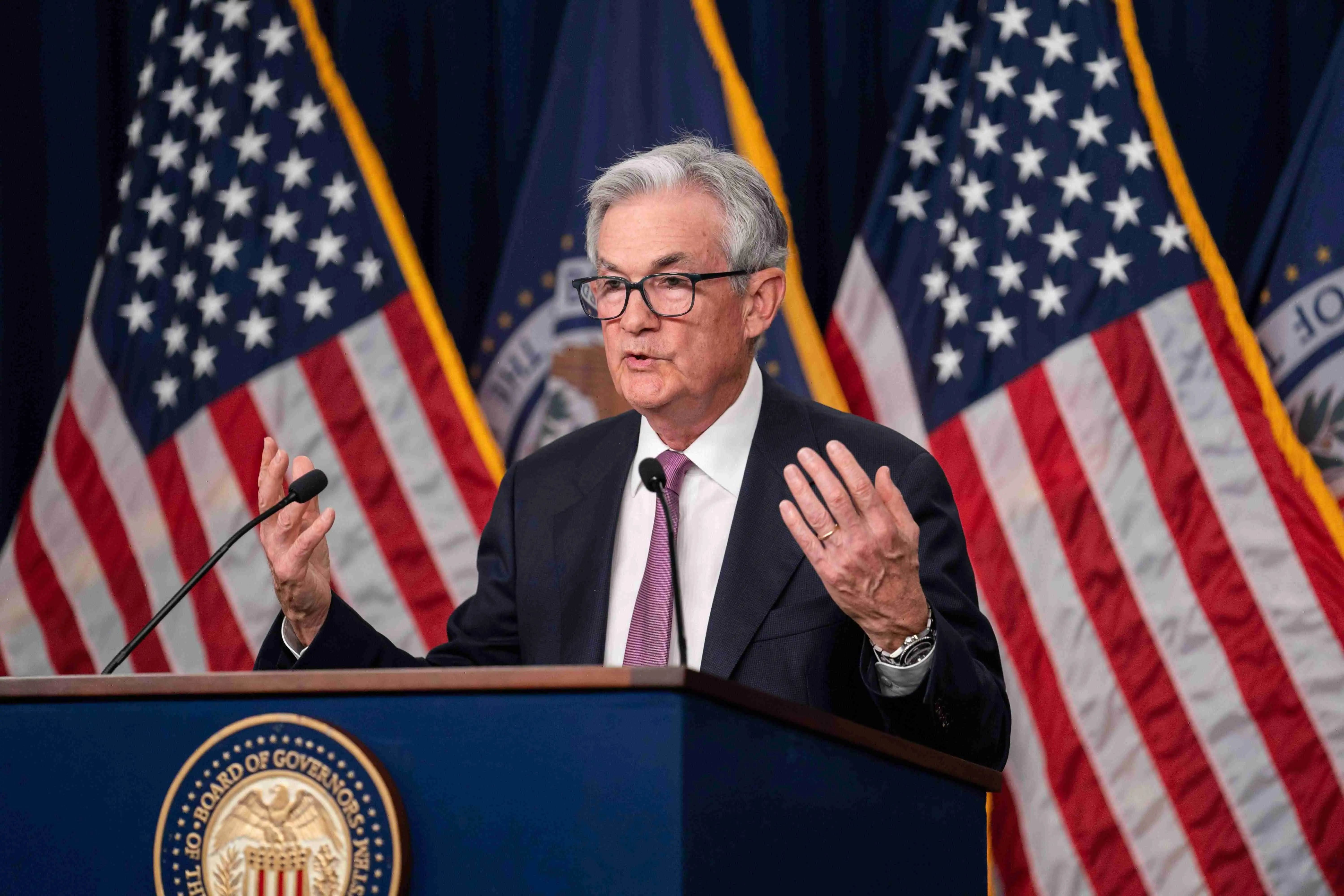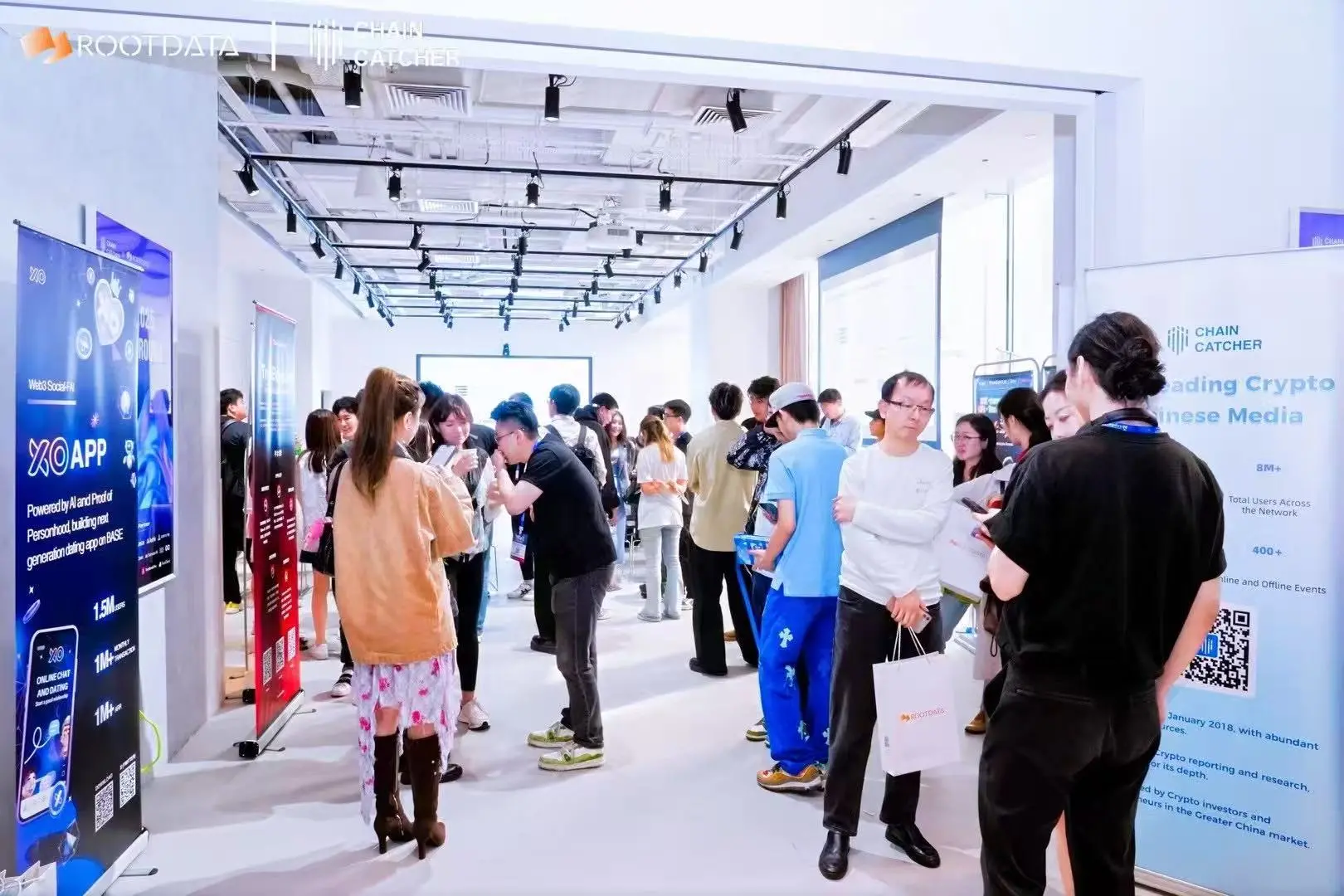Wang Yang, Zhu Haokang: The Next Step for Hong Kong Web3 is RWA to Avoid "License Killing"
Original Title: Policy Recommendations: Hong Kong Should Become a Leader in the Future RWA Ecosystem
Authors: Wang Yang, Vice President (University Advancement) of the Hong Kong University of Science and Technology and Chief Scientist of the Hong Kong Web3.0 Association; Zhu Haokang, PhD student in Financial Technology at the Hong Kong Polytechnic University and founding member of the RWA and Stablecoin Working Group of the Hong Kong Web3.0 Association
On June 1 this year, the official implementation of Hong Kong's new virtual asset regulations undoubtedly marks an important milestone in the development of Web3.0 in Hong Kong. This historically significant event strongly confirms the viewpoint expressed by Hong Kong Chief Executive John Lee at the inauguration ceremony of the "Hong Kong Web3.0 Association" on April 11 this year, namely the profound impact of Web3.0 on the development of financial technology, as well as the open attitude and firm determination of the SAR government towards this. At the same time, the Hong Kong Securities and Futures Commission opened applications for virtual asset trading platform licenses, allowing compliant operators to provide virtual asset services to professional and retail investors. The implementation of this policy undoubtedly further promotes the development of virtual assets and paves the way for the broader expansion of virtual assets and Web3.0 in Hong Kong. Despite the tightening global regulatory environment for virtual assets, the SAR government has firmly maintained its position, and a series of strategies and actions clearly demonstrate its determination and support for promoting the development of Hong Kong's virtual asset industry, further proving the SAR government's steadfast commitment to developing the virtual asset space and Web3.0.
Building a Compliant, Reasonable, and Friendly Web3 Ecosystem
However, Hong Kong's development in the virtual asset and Web3 fields has primarily focused on compliance and licensing, without emphasizing the construction of a vibrant ecosystem that allows licensed institutions to have viable business plans. Although the SFC implements such regulation to maintain order in the virtual market, this licensing system is undoubtedly a heavy burden for virtual asset companies in Hong Kong. The saying "A license to be killed" is more fitting here, as currently, licensed exchanges like OSL have incurred losses of tens of millions of dollars annually after obtaining their licenses. Therefore, Hong Kong urgently needs a broader vision to create the world's first compliant, reasonable, and friendly ecosystem for Web3, truly leading the global development of Web3.
I firmly believe that the next step for Hong Kong on the path of Web3.0 should focus on the deep integration of virtual world assets and real-world assets. We can fully leverage blockchain technology to build a robust Web3 ecosystem based on Hong Kong dollar stablecoins. Our focus should be on the digitization and tokenization of real-world assets (RWA), such as bonds, private credit, trade finance, real estate, carbon credits, and precious metals. This series of actions will greatly promote the close integration of the virtual economy and physical assets. In fact, the tokenization of RWA is not only the greatest potential for Hong Kong's development of Web3 but also the future trend of global Web3.
In a good regulatory environment, RWA can provide a truly prosperous development opportunity for legitimate participants, rather than merely becoming victims of "a license to be killed." This transformation will undoubtedly lead Hong Kong to the forefront of global Web3 development.
The tokenization of RWA—transforming tangible or intangible assets into digital tokens—is a groundbreaking shift in the digital asset space, promising to redefine market dynamics. The introduction of blockchain technology has revolutionized RWA compared to traditional securitization. RWA tokenization offers transparency and security, and expands liquidity by enabling fractional ownership. This approach not only addresses the inefficiencies of the traditional financial system but also breaks the limitations of traditional finance, allowing assets to be digitized and made unique, shortening the distance between traditional and new finance, meeting users' personalized financial needs, and lowering investment thresholds. This will stimulate more small and medium-sized investors to enter and participate in financial activities, thereby creating immense value and returns. At the same time, RWA injects liquidity and diversity into the real economy by expanding the types of assets and increasing the scale of funds.
Additionally, RWA based on Hong Kong dollar stablecoins has an added layer of security, allowing traditional finance and the real economy to enjoy the advantages of liquidity, transparency, and innovation brought by blockchain technology while protecting the funds of investors and participants. In September 2022, a study by the Boston Consulting Group (BCG) predicted that by 2030, the scale of tokenized real-world assets would reach $16 trillion. Correspondingly, Citibank released a 162-page research report in March 2023, comprehensively analyzing the path for Web3 to achieve one billion users and digital assets to reach a scale of hundreds of trillions of dollars. Citibank predicts that by 2030, $4 trillion to $5 trillion of assets will be tokenized, and the trade finance transaction volume based on blockchain technology will reach $1 trillion.
Reasonable Regulation Promotes Healthy Development of RWA
The healthy development of the RWA ecosystem relies on reasonable regulation. However, building a compliant, reasonable, and friendly environment for RWA tokenization is not easy; it requires joint efforts from the government and the industry. To this end, we suggest adopting the "RWA 2+4" approach previously advocated by Zhu Haokang as a starting point for feasibility studies. This methodology focuses on two types of tokens (security tokens and utility tokens) and four core elements (legal foundation, financial framework, technological tools, and data-driven) to find opportunities in challenges and promote the healthy development of RWA.
First, security tokens represent ownership or rights to the income of an asset or enterprise, and their value is usually directly related to the performance of the physical asset or enterprise they represent. Buyers of such tokens typically expect to receive returns through asset appreciation or income distribution. On the other hand, utility tokens provide rights to use a service or resource while allowing the data generated during the token process to be recorded on-chain. Understanding the characteristics and differences between these two types of tokens is crucial for accurately assessing and investing in RWA.
Next, we need to focus on the four core elements: legal regulation, financial architecture, technical support, and data application.
Law forms the foundation of RWA, determining which assets can be tokenized and the regulations that must be followed during the tokenization process. As a major global financial center, Hong Kong has a comprehensive securities legal system, providing a unique advantage for promoting compliant security token offerings (STOs). Hong Kong's securities laws comprehensively regulate the issuance and circulation of various securities assets, such as stocks and bonds. Financial assets that need to be tokenized, such as stocks, debts, and funds, have clear legal definitions in the Hong Kong market. Additionally, the SFC has established comprehensive standards for the review of securities issuance and listing. RWA undergoing STOs need to be linked to corporate equity, debt, and other assets, which must comply with the SFC's information disclosure and approval requirements to ensure their quality. Furthermore, Hong Kong has established a strict investor suitability management system to prevent ordinary investors from purchasing complex and high-risk RWA products.
Finance is the framework for RWA, defining the specific structure for asset tokenization and trading, including asset evaluation, auditing, token issuance and trading, and related risk management. In debt and equity financing, Hong Kong has rich experience and world-leading scale. Hong Kong's investment banks and auditing firms can provide professional valuation and auditing services for the underlying assets of RWA, determining asset quality and ownership clarity, thus providing a foundation for token issuance. Moreover, Hong Kong's compliant licensed virtual asset trading platforms can ensure that the issuance and trading of RWA tokens are open and fair.
Technology is the tool for RWA, providing the technological means to achieve tokenization and trading. This includes blockchain technology, smart contract technology, oracles, cross-chain capabilities, and related security and privacy protection technologies. Since the release of the virtual asset development policy declaration in Hong Kong on October 31, 2022, excellent blockchain technology companies from around the world have begun to actively settle in Hong Kong.
At the "2023 Shanghai Blockchain International Week: 9th Global Blockchain Summit" held on September 19, 2023, the CEO of Hong Kong Cyberport Management Company, Simon Chan, stated that there are now over 190 Web 3.0-related companies in Cyberport, including important underlying blockchain infrastructure companies and enterprises, such as digital identity and privacy computing infrastructure company zCloak, and professional digital asset custody solution company Safeheron.
Establishing a Public Chain that Meets Hong Kong Standards
Data is the driving force for RWA, providing important information about assets and markets to support investment decisions and market analysis. The new investment method of RWA tokenization not only offers investors broader investment choices but also brings a wealth of data and information to the market, such as trading data and user behavior data. This data forms a powerful driving force, significantly enhancing the ability of asset operators and investors to understand market dynamics, predict market trends, and manage investment risks. The application of this data will also promote the organic integration of artificial intelligence and Web3, further advancing technological innovation in Hong Kong.
To promote the development of RWA tokenization in Hong Kong, we first need to build a compliant and robust infrastructure, with blockchain technology being the core component. It not only provides a decentralized, secure, and transparent platform for assets to flow globally but also enables the automatic execution of complex financial transactions and agreements. However, due to the complexity of the process of putting RWA on-chain, we need to implement a robust, secure, and Hong Kong-compliant customer due diligence (KYC) mechanism. Organizations such as the Hong Kong Web3.0 Association have proposed establishing a new public blockchain for RWA in Hong Kong, incorporating the corresponding KYC mechanism. Although establishing a new public chain requires significant technical investment and extensive community building, it is a key step in promoting the development of RWA and an important step in Hong Kong's financial technology innovation.
Of course, establishing a new public chain is not an overnight task. It requires substantial technical investment, including designing efficient consensus mechanisms, building robust network architectures, and developing user-friendly clients. Additionally, extensive community building and management are needed to attract and retain developers, users, and investors. We believe that as long as Hong Kong is determined to become a leader in RWA, these challenges will be quickly overcome.
Stablecoins are another essential infrastructure for RWA tokenization, and their healthy implementation is crucial for the development of RWA. We must ensure their effective promotion in Hong Kong to pave the way for the further development of RWA. As a hub for global Web3.0 development and an international financial center, Hong Kong needs to rapidly issue Hong Kong dollar stablecoins. With the vigorous development of RWA, the demand for stablecoins is expected to surge.
In our previous article, "Proposal for Hong Kong to Issue Hong Kong Dollar Stablecoins Backed by Foreign Exchange Reserves," we suggested that Hong Kong should issue a unified Hong Kong dollar stablecoin (HKDG). However, upon seeing Singapore's regulatory framework for the stablecoin market—namely, the "Response to Public Consultation: Proposed Regulatory Approach for Stablecoin-Related Activities"—we are very concerned that Hong Kong might adopt similar stablecoin policies, which could have serious negative impacts on the future development of RWA in Hong Kong. Singapore's stablecoin policy does not provide a comprehensive plan for the issuers of stablecoins and the types of currencies they are pegged to, which will inevitably lead to fragmentation and chaos in stablecoin issuance schemes, greatly increasing the likelihood of vicious competition among stablecoins, raising financial risks, hindering the formation of mature stablecoins, and potentially marginalizing stablecoins as niche products. This approach cannot meet the large-scale demand for stablecoins that will arise from the comprehensive development of RWA in the future.
Therefore, we strongly urge Hong Kong to launch a unified stablecoin, guided by a comprehensive plan, issued by licensed institutions (which can include government and financial institutions such as banks, insurance companies, and funds), along with corresponding profit-sharing schemes. Only in this way can we avoid market fragmentation, reduce financial risks, meet the large-scale demand for stablecoins, and make Hong Kong's stablecoin a mature and widely used financial product, laying the groundwork for the healthy development of Hong Kong's RWA ecosystem and further consolidating Hong Kong's leading position in the global financial technology field.
In fact, we do not have much time left. The field of RWA tokenization has already attracted widespread attention and has been widely applied across different industries. As part of decentralized finance (DeFi) protocols, MakerDAO is one of the earliest institutions to incorporate RWA into its strategic planning. As early as 2020, MakerDAO passed a proposal to use RWA as collateral for tokenized real estate and other items, significantly expanding the issuance scale of DAI (MakerDAO's stablecoin). Although the overall situation of DeFi has not been ideal over the past year, MakerDAO's investment in the RWA field has continued to increase. Statistics show that as of May this year, MakerDAO's total investment in RWA portfolios has reached 2.34 billion DAI. It is predicted that annualized income from RWA will reach as high as $71 million, making it an important source of income for MakerDAO. Additionally, the Propy platform in the United States is a typical application of real estate RWA. This platform utilizes blockchain technology to put real estate on-chain in the form of non-fungible tokens (NFTs) and supports purchases using cryptocurrencies, while also leveraging artificial intelligence (AI) technology to enhance transaction efficiency. On July 6 of this year, Propy announced that the value of its platform token PRO rose from $0.268 to $0.571, an increase of over 200%. This event strongly demonstrates the immense potential and value of RWA in real-world applications.
Clarifying Regulatory Policies for RWA Token Issuance
As an international trading port and world trade center, Hong Kong naturally possesses unparalleled advantages and substantial market demand from both geographical and economic perspectives. Hong Kong has the capability to lead the global RWA market and should seize the opportunity to quickly build an RWA business ecosystem based in Hong Kong. First, we need to clarify the regulatory policies for RWA securitization and the issuance of security tokens (STOs), specifying the range of assets that security tokens can be linked to and the information disclosure requirements to protect investors' rights. We should establish a trading platform for RWA token issuance on the Hong Kong Stock Exchange and other on-market venues to enhance liquidity.
We should encourage banks, insurance companies, funds, and other financial institutions to fully utilize their professional capabilities to participate in RWA business. At the same time, Hong Kong should strengthen cooperation with Singapore, the European Union, and other regions in the field of RWA tokenization to jointly expand the market. Through education and training, we can accumulate the professional talent needed for RWA tokenization business. Building an open, regulated, and vibrant RWA tokenization business ecosystem will significantly enhance Hong Kong's digital economy and financial technology strength, laying a solid foundation for Hong Kong's future.









